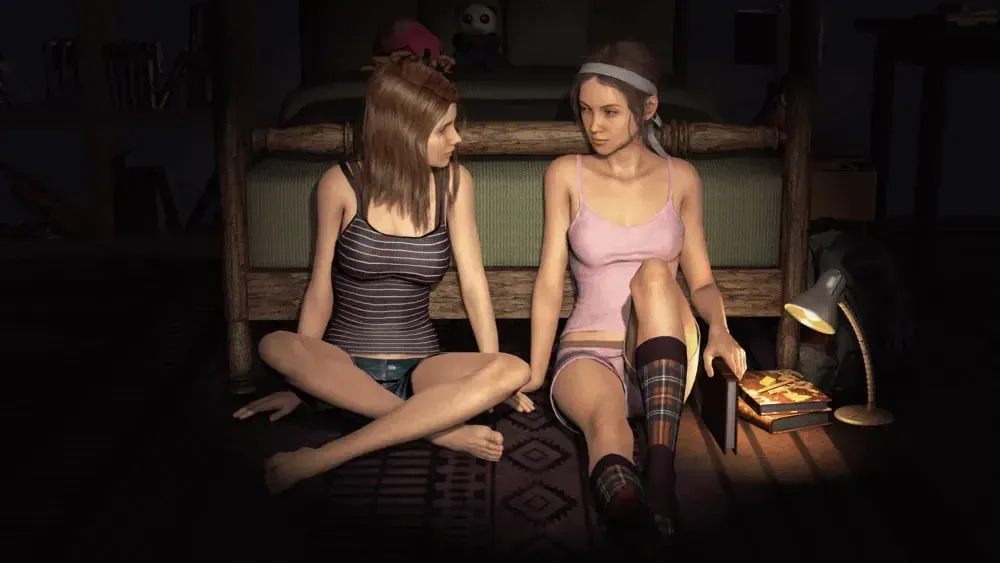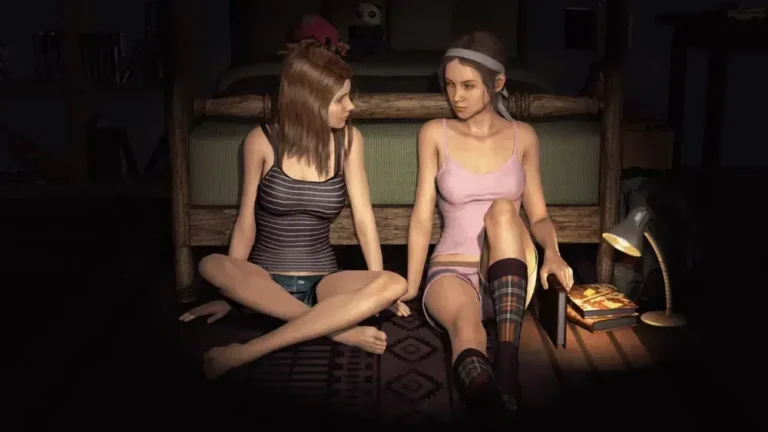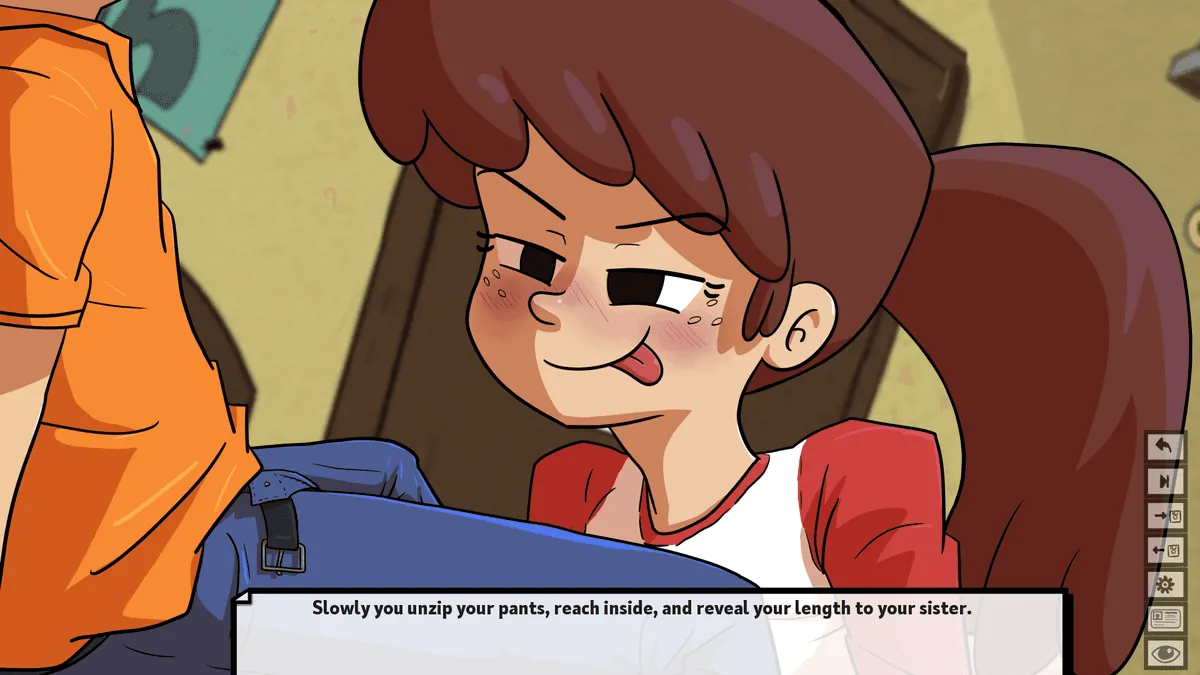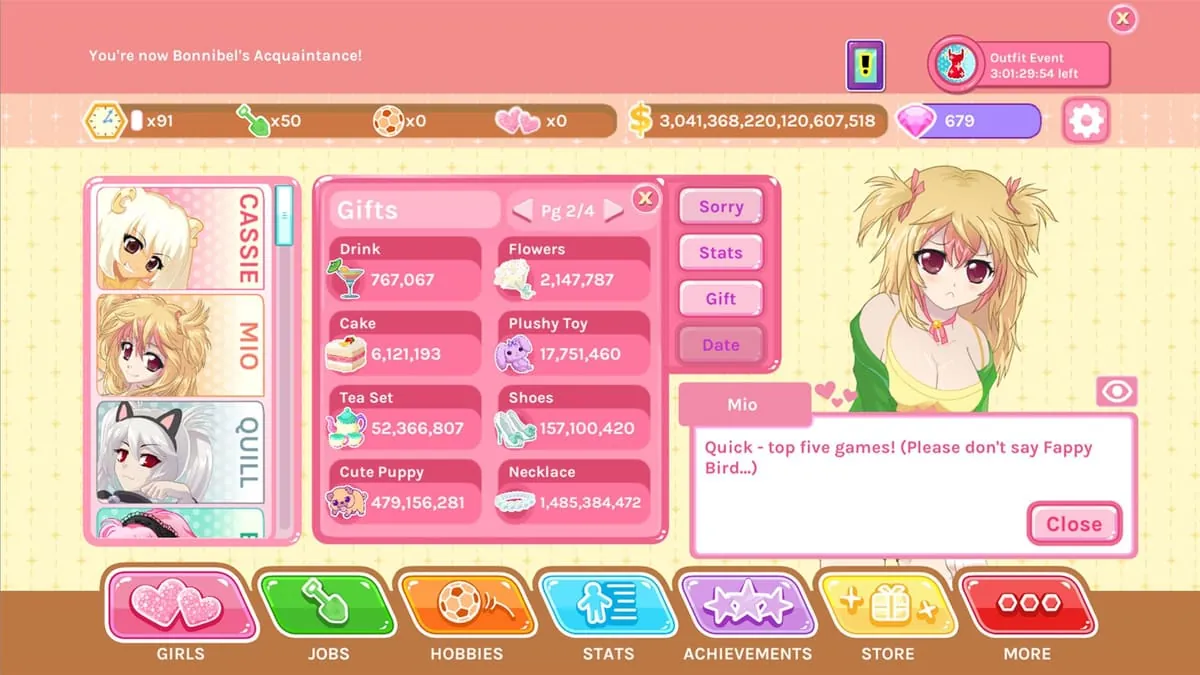
Short Sad Stories
Play Short Sad Stories
Short Sad Stories review
Explore the narrative, choices, and emotional impact of this unique adult visual novel
If you’re searching for a visual novel that goes beyond the usual tropes, Short Sad Stories stands out as a poignant, choice-driven journey through the lives of young adults navigating love, loss, and self-discovery. Centered on Alice, a dreamy protagonist caught between reality and fantasy, the game weaves together complex relationships, unexpected dilemmas, and moments of hope. With its Final + DLC update, the experience is now complete, offering players a rich, emotionally charged narrative where every decision matters. Whether you’re drawn to mature storytelling or games that make you think, Short Sad Stories delivers a memorable, immersive adventure.
What Is Short Sad Stories?
So, you’ve heard the name and you’re wondering, what exactly is the Short Sad Stories game? 🤔 At its heart, it’s a profoundly moving Alice visual novel that explores the delicate line between the harshness of reality and the comforting escape of fantasy. It’s not your typical game; it’s an interactive narrative experience designed to make you feel, to make you think, and to remind you that your decisions carry weight.
I remember booting it up for the first time, expecting a somber tale, but I wasn’t prepared for how personally it would land. It’s the kind of game that stays with you long after you’ve closed it, its characters feeling like old friends you’re worried about. Let’s pull back the curtain on this unique experience. ✨
The Story and Main Characters
The Short Sad Stories game centers on Alice, a young woman grappling with a deep sense of disillusionment and sorrow. Her life feels like a series of grey, monotonous days, a reality that is often too painful to bear. To cope, she retreats into a rich, vibrant fantasy world—a place where her anxieties can be faced in a more symbolic, and sometimes manageable, way.
The genius of this Alice visual novel is how it seamlessly blends these two worlds. You’re never quite sure if the fantasy is a coping mechanism, a dream, or something more, and that ambiguity is central to the story’s power. The narrative doesn’t just tell you Alice is sad; it makes you live inside her head, sharing both her painful realities and her fleeting moments of hope.
The characters you meet, in both worlds, are crucial to understanding Alice’s journey. They represent different facets of her psyche, her past, and her potential futures.
| Character | Realm | Role in Alice’s Journey |
|---|---|---|
| Alice (Real World) | Reality | The protagonist we guide; struggling with isolation, regret, and the pressure of daily life. She is the anchor of the story’s realism. |
| Alice (Fantasy World) | Fantasy | A more idealized or adventurous version of herself; represents her desires, courage, and repressed personality. |
| The Guide | Fantasy | A mysterious figure who challenges Alice’s perceptions. Often acts as a catalyst for growth, pushing her toward difficult truths. |
| The Friend (e.g., Sarah) | Reality | Represents connection and the outside world. Interactions here are often pivotal, offering a lifeline back to reality or a source of new conflict. |
This cast creates a powerful dynamic where every conversation, whether with a figment of her imagination or a real person, feels loaded with meaning. The emotional storytelling is baked into these relationships, making you care deeply about the outcome of each interaction. 💖
Gameplay and Player Choices
If you’re new to visual novels, think of the Short Sad Stories game as a “choose your own adventure” book brought to life with beautiful artwork and music. You’ll read through the narrative, and at key moments, the game will present you with a decision. But here’s the crucial part: player choices matter. This isn’t an illusion; your selections genuinely reroute the entire narrative pathway.
The game masterfully avoids simple “good vs. bad” options. Instead, you’re often choosing between different shades of grey. Do you encourage Alice to retreat further into her fantasy to avoid immediate pain, or do you push her to engage with a difficult reality that might lead to long-term healing? There are no easy answers, and that’s what makes it so compelling.
Pro Tip: Don’t try to “game” the system on your first playthrough. Go with your gut. The most authentic emotional journey comes from responding as you truly feel, not from trying to guess the “best” outcome.
Let me give you a concrete example from my own playthrough that hammered home how much player choices matter.
The Pivotal Moment: Alice is in the library in the real world. Her friend Sarah approaches, trying to strike up a conversation and clearly concerned about her. Alice is feeling vulnerable and overwhelmed.
- Choice A: “Put on a brave face and make an excuse to leave.”
- Choice B: “Admit you’re not okay and talk to her.”
I chose Option A, thinking I was protecting Alice from an awkward conversation. The consequence was immediate and heartbreaking. The narrative highlighted Alice’s increased isolation, Sarah’s hurt and confusion, and the fantasy world that night became darker, more labyrinthine, reflecting her reinforced walls. It was a direct result of my choice to avoid connection. When I replayed and chose Option B, the scene unfolded into a tender, vulnerable moment that strengthened their bond and subtly brightened the palette of the subsequent fantasy sequence. This is the core of the game’s emotional storytelling—you aren’t just watching consequences; you are authoring them. 🖊️
This mechanic is what leads to the game’s multiple visual novel endings. Your journey through Alice’s psyche can conclude in several profoundly different ways, from cathartic acceptance to tragic resignation. The recent Final + DLC update has made this even richer, adding new choice branches and, most importantly, providing a more definitive and expanded conclusion to Alice’s saga.
Themes and Emotional Depth
The Short Sad Stories game earns its title by not shying away from difficult subject matter. It delves into mature themes in games with a sensitivity and nuance that is often missing from the medium. We’re talking about themes of:
- Depression and Anxiety: The game is a raw, unflinching look at the internal struggle of living with mental health challenges.
- Loss and Regret: Alice is haunted by past decisions and people she has lost, and the player must help her navigate this grief.
- The Nature of Reality and Escapism: It poses a difficult question: is escaping from pain a healthy coping mechanism or a dangerous trap?
- Personal Growth and Resilience: At its core, despite the sadness, this is a story about the arduous path toward healing and self-acceptance.
What makes the emotional storytelling here so special is its balance. Yes, it deals with heavy topics, but it’s never gratuitous or hopeless. Glimmers of warmth, humor, and human connection are woven throughout, reminding you that light exists even in the darkest of places. The Alice visual novel format is the perfect vehicle for this, as the quiet moments of reflection are just as impactful as the dramatic ones.
The Final + DLC update has been praised for deepening these themes, adding new layers to Alice’s backstory and providing more context for her struggles. It completes the narrative arc in a way that feels both satisfying and emotionally earned, offering endings that feel like genuine culminations of your specific journey.
Playing this game is an act of emotional investment. You will likely see pieces of yourself, or people you know, in Alice’s story. It’s a powerful reminder of the strength of vulnerability and the impact of our choices, both in-game and in our own lives. The Short Sad Stories game is more than a pastime; it’s a poignant, interactive reflection on what it means to be human, to hurt, and to hope. 🌈
Short Sad Stories is more than a game—it’s an emotional journey that stays with you long after the credits roll. With its rich narrative, meaningful choices, and mature handling of sensitive themes, it offers a rare blend of storytelling depth and player agency. Whether you’re drawn to visual novels for their emotional resonance or their interactive storytelling, this title delivers on both fronts. The Final + DLC update ensures a complete, satisfying experience, and the availability across multiple platforms makes it accessible to a wide audience. If you’re ready for a story that challenges, moves, and ultimately uplifts you, give Short Sad Stories a try—and see where your choices take you.









